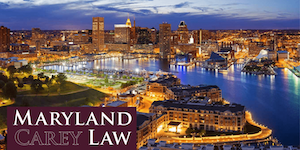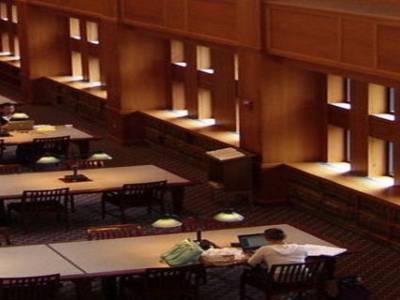I have completed my LLB from India and I have also passed the QLTT exam from UK. I am interested to appear for the New York Bar Exam. I understand that the foriegn lawyers are required to give the LLM before they can apply for the New York Bar exam ( except for UK/Europe lawyers).Since I have cleared the QLTT from UK, would appreciate if someone can help me, if I would require to do the LLM from US or I am exempted, in order to appear for the New York Bar Exam.
New York Bar Exam
Posted May 25, 2007 15:00
Posted May 25, 2007 15:03
You should contant the NY Board of Bar Examiners, they will be able to tell you if you need an LLM or not.
Posted May 25, 2007 18:06
As you have an LLB from a Common Law country I think you should be fine. It would pay to check though.
Posted May 25, 2007 20:49
Fly Girl is right.
You do not need a LL.M., to take the New York Bar, if you a law degree from a common law country. You have to be enrolled in the bar of your home country to be eligible to take the Califiornia bar. These 2 jurisdictions are most popular with foreign lawyers, because the eligiblity conditions are pretty straight forward.
You can write the bar exam in Missouri, Texas,Colorado,Virginia,Connecticut,Arizona,North Carolina, South Carolina, Michigan, Kentucky, however there are lot of conditions to be met. You can also register yourself as a "Foreign Legal Consultant" in lot of jurisdictions, however you can practise exclusively, laws of your home country.
Doing a LL.M. from US, is definitely a plus, if you want to take a bar exam in the US, but it is a very expensive program
Fly Girl is right.
You do not need a LL.M., to take the New York Bar, if you a law degree from a common law country. You have to be enrolled in the bar of your home country to be eligible to take the Califiornia bar. These 2 jurisdictions are most popular with foreign lawyers, because the eligiblity conditions are pretty straight forward.
You can write the bar exam in Missouri, Texas,Colorado,Virginia,Connecticut,Arizona,North Carolina, South Carolina, Michigan, Kentucky, however there are lot of conditions to be met. You can also register yourself as a "Foreign Legal Consultant" in lot of jurisdictions, however you can practise exclusively, laws of your home country.
Doing a LL.M. from US, is definitely a plus, if you want to take a bar exam in the US, but it is a very expensive program
Posted May 28, 2007 09:17
Thanks for the information.
LLM form US would be great, however if i ca qualify to appear for the NY Bar will the LLB ( Common Law County) or QLTT, that would be great.
I will also write to NY Bar and get the detailed information.
LLM form US would be great, however if i ca qualify to appear for the NY Bar will the LLB ( Common Law County) or QLTT, that would be great.
I will also write to NY Bar and get the detailed information.
Posted May 28, 2007 16:32
Looking at the bar exam spread sheet, some wrong information is given here. I am pretty sure i.e. North Carolina and South Carolina will not let you sit the bar exam without a JD degree. There are some states however where under some circumstances you may sit the bar with an LLM/credits from ABA approved law school and an equivalent foreign law degree, but there are lots of requirements to be met for this.
I.e. in Virginia you need an LLM + letter from a dean of a Virginia law school stating that your foreign law degree together with that LLM is equivalent to a JD.
NY however seems to be a safe bet.
I.e. in Virginia you need an LLM + letter from a dean of a Virginia law school stating that your foreign law degree together with that LLM is equivalent to a JD.
NY however seems to be a safe bet.
Posted May 28, 2007 19:40
I got the information regarding eligibilty for LL.M. graduates to write the bar exam in North and South Carolina, from the article "Options for "Foreign- Trained Attorneys" - written by Pamela Stiebs Hoollenhorst.
I am sorry if the factual information is different.
I am sorry if the factual information is different.
Posted May 28, 2007 20:22
It is merely outdated. They changed the rules pretty recently (the last couple of years).
Posted May 29, 2007 00:31
I agree that it would be a lot easier (and cheaper!) to qualify for the NY Bar without doing the LLM. My only advice would be to make sure you have a good chance at getting a job in NYC before doing the bar. The reason is that taking the NY Bar was THE WORST experience of my academic life and the idea of sitting it and it being a waste because I didn't get a job in NYC makes me feel ill...
From my experience having the NY Bar qualification doesn't make you more likely to get a job (most of my friends got their jobs - with or without an LLM - and then sat the bar exam). Personally I would wait until I had a job offer (or at least some positive responses) before sitting the bar. It is hell.
From my experience having the NY Bar qualification doesn't make you more likely to get a job (most of my friends got their jobs - with or without an LLM - and then sat the bar exam). Personally I would wait until I had a job offer (or at least some positive responses) before sitting the bar. It is hell.
Posted May 29, 2007 00:46
figgie, elaborate on the ny bar experience. format, number of questions, difficulty,. etc...
Posted May 29, 2007 00:59
heh, wow. Where to start!
Ummm...well the exam itself is two days long. The first day is solely New York Law - the morning is multichoice and then some essays (I can't remember how many, maybe 6). And the afternoon is a practical test advising a client after reading a fake file. That day was ok but you have to know your stuff. There is no guessing anything. If you don't know an area of law that they ask in the essay questions then you have nothing to write about because they are very very specific.
The second day is "multi-state" so they ask you about the "majority rules" ie: the rules that most of the states use in the US (although sometimes they will specifically ask you about the minority rule so you have to know that as well). There are only 6 subjects (Evidence, Property, Crimes, Contract, Torts, and Constitutional). The morning is 100 multi-choice and the afternoon is another 100. You have 1.8 minutes to answer each question. Each question is accompanied by an almost half a page fact scenario. There are four potential answers and usually ALL of them are correct but they ask you for the "most correct." Sometimes they ask you, ridiculously, for the answer which is "most wrong."
In total you have to study about 20-25 areas of law in extreme detail having no idea what you will be examined on. Plus the New York stuff differs from the multi-state stuff so you have to learn the different rules for the same area of law. You can't learn everything no matter how hard you study. I worked from 9am until midnight 6 days a week with a couple of hours off in the middle of the day for lunch and exercise. I did that for about 10 weeks straight. I passed but only just (ie: if I had studied less I would have failed).
I hope that helps!
The bar was worth it because I had a job and I am glad to have the qualification. But I definitely wouldn't do it just to have it on my CV or with only a remote possibility of working here in NYC.
Ummm...well the exam itself is two days long. The first day is solely New York Law - the morning is multichoice and then some essays (I can't remember how many, maybe 6). And the afternoon is a practical test advising a client after reading a fake file. That day was ok but you have to know your stuff. There is no guessing anything. If you don't know an area of law that they ask in the essay questions then you have nothing to write about because they are very very specific.
The second day is "multi-state" so they ask you about the "majority rules" ie: the rules that most of the states use in the US (although sometimes they will specifically ask you about the minority rule so you have to know that as well). There are only 6 subjects (Evidence, Property, Crimes, Contract, Torts, and Constitutional). The morning is 100 multi-choice and the afternoon is another 100. You have 1.8 minutes to answer each question. Each question is accompanied by an almost half a page fact scenario. There are four potential answers and usually ALL of them are correct but they ask you for the "most correct." Sometimes they ask you, ridiculously, for the answer which is "most wrong."
In total you have to study about 20-25 areas of law in extreme detail having no idea what you will be examined on. Plus the New York stuff differs from the multi-state stuff so you have to learn the different rules for the same area of law. You can't learn everything no matter how hard you study. I worked from 9am until midnight 6 days a week with a couple of hours off in the middle of the day for lunch and exercise. I did that for about 10 weeks straight. I passed but only just (ie: if I had studied less I would have failed).
I hope that helps!
The bar was worth it because I had a job and I am glad to have the qualification. But I definitely wouldn't do it just to have it on my CV or with only a remote possibility of working here in NYC.
Posted May 29, 2007 01:27
i feel sick just reading that.
Posted May 29, 2007 01:32
heh, but it is mean of me to write it really. I don't want to put people off but just set out some of the realities so they know whether it is worth the risk.
In someways it was easier than writing my thesis because it was just complete memorisation (with some game strategy for the multi-choice). Zero originality or critical thinking needed.
In someways it was easier than writing my thesis because it was just complete memorisation (with some game strategy for the multi-choice). Zero originality or critical thinking needed.
Posted May 29, 2007 02:53
Hi Flygirl,
Did you do your LL.M. from US ? Is it true that the Feb session of the New York Bar is more difficult then the July Session. I appeared in the Feb , 2007 and scored 639/1000 (665 is required to pass the bar).
I agree the MBE portion is pretty challenging and extremely vast. What is a good score on MBE aacording to you ? I scored 133/200. However my score on New York Essay was not good and therefore, I flunked.
Essays are critcal to pass, according to me, it constitutes 40 % of the total score.
Did you do your LL.M. from US ? Is it true that the Feb session of the New York Bar is more difficult then the July Session. I appeared in the Feb , 2007 and scored 639/1000 (665 is required to pass the bar).
I agree the MBE portion is pretty challenging and extremely vast. What is a good score on MBE aacording to you ? I scored 133/200. However my score on New York Essay was not good and therefore, I flunked.
Essays are critcal to pass, according to me, it constitutes 40 % of the total score.
Posted May 29, 2007 03:09
That is correct - the essays are worth 40% and the multi-state 60%.
I am not sure what a good multi-state score is. I can't remember what mind was. I think you should aim for around 70%.
I am not sure why the February exam would be harder. I know it has a higher fail rate but I think that is because it is usually sat by foreigners and people who have already failed once before. I am sure you will be fine in July if you only just failed last time. Good luck!
I am not sure what a good multi-state score is. I can't remember what mind was. I think you should aim for around 70%.
I am not sure why the February exam would be harder. I know it has a higher fail rate but I think that is because it is usually sat by foreigners and people who have already failed once before. I am sure you will be fine in July if you only just failed last time. Good luck!
Posted May 29, 2007 03:10
oh, and to answer your first question, I did my LLM at Columbia.
Posted May 29, 2007 04:36
figgie, thanks for the insight. i remember you said you're from Australia. Did you do an undergrad degree before you did the llb? I don't think it's a prerequisite there, is it? My understanding is that one can gop directly into law from high school down under. I was thinking how peculiar it is that in Canada and the US we have to do an undergrad degree first. It's strange, isn't it? I can't think of any other common law jurisdiction where the LLB/JD is a second degree, can you?
I too am interested in acacdemia and therefore in doing a PHd/SJD/Dphil etc... But I must say that completing such a degree seems a lot more exhausting when one already has a minimum of 8 years uni education before even starting the programme (4 year BA, 3 year LLB, 1 year LLM). I don't really have point, simply enjoy complaining...
I too am interested in acacdemia and therefore in doing a PHd/SJD/Dphil etc... But I must say that completing such a degree seems a lot more exhausting when one already has a minimum of 8 years uni education before even starting the programme (4 year BA, 3 year LLB, 1 year LLM). I don't really have point, simply enjoy complaining...
Posted May 29, 2007 06:16
India is a common law country, where there are 2 ways of graduating with a law degree. Earlier one had to have an undergraduate degree like B.A., B.Sc., B.Com.(which takes 3 years) and then get into the 3 years LL.B. Program.
However, in the late 80's, National Law School, Bangalore, which is a reputed law university, initated the trend of 5 year integrated law program (BA., LL.B.), which is now a trend currently in India, in many Universites. Therefore now a dual program exists in India, one is enrolling after an undergraduate degree, in the 3 years LL.B. Program or the integrated 5 years (B.A., LL.B.) program, which is very popular.
However, the LL.M. Program in India is 2 years.
I read in some article that ABA is planning to introduce the integrated (B.A., J.D.) program, which can be completed in 6 years.
However, in the late 80's, National Law School, Bangalore, which is a reputed law university, initated the trend of 5 year integrated law program (BA., LL.B.), which is now a trend currently in India, in many Universites. Therefore now a dual program exists in India, one is enrolling after an undergraduate degree, in the 3 years LL.B. Program or the integrated 5 years (B.A., LL.B.) program, which is very popular.
However, the LL.M. Program in India is 2 years.
I read in some article that ABA is planning to introduce the integrated (B.A., J.D.) program, which can be completed in 6 years.
Posted May 29, 2007 17:40
Hi ED,
Yup, in Australia law is an undergraduate degree but i did Arts and Law combined, which was 5 years.
I know what you mean about doctoral studies. I am not entirely sure it is worth it but I just wanted do look further at a certain issue and learn more about UK law. My husband wanted to work in the UK before going home and rather than work in another commercial firm I thought this would be the better option.
Yup, in Australia law is an undergraduate degree but i did Arts and Law combined, which was 5 years.
I know what you mean about doctoral studies. I am not entirely sure it is worth it but I just wanted do look further at a certain issue and learn more about UK law. My husband wanted to work in the UK before going home and rather than work in another commercial firm I thought this would be the better option.
Posted Jun 22, 2007 17:13
Hi
I was hoping someone could give me some advice. i am a Uk trainee solicitor and am interested in qualifying in the US. i have been told that i need to get written confirmation from the californian bar that i am eligible to take the exam before i can enroll on the review course. i wrote to the bar about 5 weeks ago but not received any responce. has anyone had a similar expereience?
I was hoping someone could give me some advice. i am a Uk trainee solicitor and am interested in qualifying in the US. i have been told that i need to get written confirmation from the californian bar that i am eligible to take the exam before i can enroll on the review course. i wrote to the bar about 5 weeks ago but not received any responce. has anyone had a similar expereience?
Other Related Content
In-Depth: The American Bar Exam
Article Jan 07, 2017
Confused about the differences between the UBE and MBE? Don’t know if you’re eligible to take the bar exam? You’re not alone. A guide to help LL.M. students and graduates navigate the US bar exam.
Hot Discussions
-
Cambridge LL.M. Applicants 2024-2025
Oct 30, 2024 141,890 544 -
NUS LLM 2024-25 Cohort
Oct 25, 2024 5,838 34 -
MIDS - 2024-25
Nov 15 12:52 AM 1,824 16 -
Warwick or Birmingham
Nov 10, 2024 1,159 5 -
LL.M. Scholarship Rates?
Nov 09, 2024 2,481 5 -
NUS LLM cohort 2025/26
Nov 03, 2024 404 4 -
Scholarship Negotiation Strategy (BCL v. NYU LLM Dean's Graduate Scholarship)
Nov 09, 2024 1,010 4 -
EU citizen barred in the US -- will an LLM from an EU school help me practice law somewhere in the EU?
Nov 15 12:58 AM 116 4




